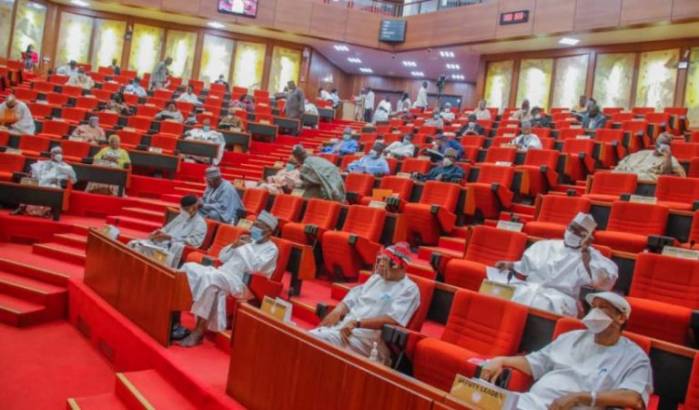With Nigeria’s population of about 190 million growing at 2.44 per cent annually, the governor of the Central Bank of Nigeria (CBN), Godwin Emefiele, has said the rising population of the country amongst other factors is putting more pressure on housing challenge.
Emefiele while delivering keynote address at a workshop for judicial officers on mortgage, with the theme: “Mortgage Disputes in Nigeria: The Need for Expeditious Resolution of Case” noted that the high rate of population growth seems to be contributing in some measure to the pressure on the housing sector.
“Nigeria’s population grows at an estimated annual growth rate of 2.44 per cent which considerably outstrips its housing supply. The unabating population of tenants over homeowners is the primary reason for the focus on this sector. In addition to rising population – the high rate of rural to urban migration exerts significant pressure on limited housing stock in those areas, often leading to immense pressure, and inability to comfortably meet mortgage lender approval criteria” the CBN Governor stated.
Emefiele, who identified various bottlenecks hindering genuine investors and by extension free flow of funds into the mortgage sector, said the “land tenure system as enshrined in the Land Use Act of 1978 has deterred proper development of a robust and sustainable housing sector in Nigeria.”
Emefiele also disclosed that difficulties in delivering affordable housing to low and middle income households wherein lies the greatest demand for housing as another major drawback.
He also acknowledged limited access to housing and mortgage financing, complications in enforcing mortgage contracts and foreclosure on properties in Nigerian courts, slow bureaucratic procedures in land administration and high cost of land registration as serious impediments to adequate housing delivery in Nigeria.
He also identified high rate of population growth, high rate of rural-urban migration and exorbitant cost of construction materials as other problems militating against the robust development of housing and mortgage sectors in the country.
While advocating for more protection of property and contract rights, the governor commended some states of the federation that have undertaken reforms aimed at improving access to courts and expressed optimism that the initiatives being championed by the Nigeria Housing Finance Program (NHFP) may present viable models for tackling teething problems confronting the housing sector in the country.
He however reiterated the need to take urgent action aimed at expediting judicial process for adjudicating on mortgages and other commercial disputes.
Emefiele explained that the low ranking of the country in the area of “Enforcement of Contracts” on Ease of Doing Business, is partly due to the length of time and significant expenses involved in the litigation process.
“The poor ranking discourages both local and foreign investments including into the mortgage financing sector.
“This is because lenders have, over time, become wary of the delays and uncertainties which often characterize simple mortgage disputes such as a claim for repayment of mortgage loans, exercise of the power of sale, appointment of a receiver, foreclosure, to mention a few” he said.











